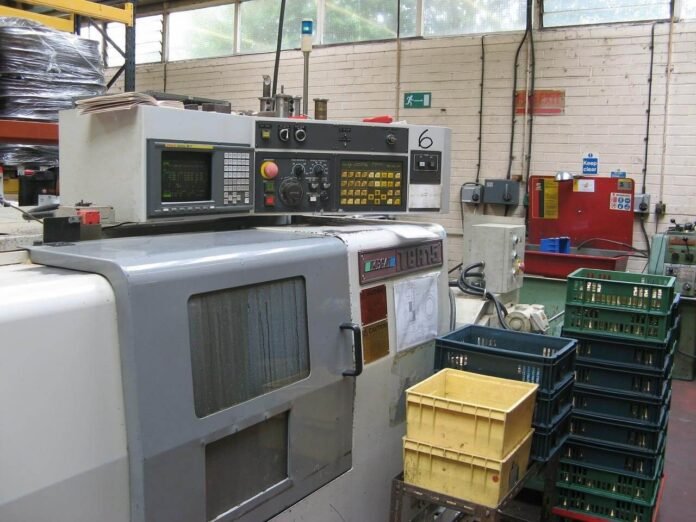Opening a business that offers machinery is a lucrative venture in today’s ever-expanding industrial world. From mass production, building infrastructures, and logistics, machinery plays an integral role in completing these tasks. However, considering the heavy-duty functions that these machines have to provide, you have to ensure that the equipment that you manufacture is of high quality as well.
To do this you also have to own personal machines that can help you build and assemble the necessary parts. However, as a start-up company, coping with high demand may be challenging, as you also have to set budgets for research, marketing, and manpower. So, how do you cope with these potential problems? Learn all about it here.
Check Industry Competition
Scanning your locale for up-and-coming, well-established competitors is the best way to successfully launch your machinery business. By studying their offered products and services, you’ll be able to determine any neglected niche in the market and focus on providing that.
As a budding entrepreneur, beating the competition by providing the same machinery services will be challenging, as they will already have loyal customers. Instead of positioning yourself towards the same audience, consider developing alternative deals that overlooked customers can use.
Checking other industry competitions will also help you evaluate their strengths and weaknesses, giving you insight into how you should plan your future operations and campaigns. So, if you’re planning to sell air compressor services, make sure to check out companies like Champion Compressors for insight.
Consult Industry Experts
As a beginner, you might be tempted to approach rival businesses and competitors for advice, regarding your business plans and ventures. However, that is a huge risk, as they may peddle you false information, or none at all, as businessmen are privy to their company secrets. Instead, try consulting industry experts that have extensive knowledge of the specific machinery that you want to expand on.
Seeking out these useful tips from trusted professionals can be an arduous process, but the gathered Intel will be worth it. Your established contacts will also act as useful connections if you ever want to establish partnerships with them.
It’s also best to contact machinery experts and engineers from your local area since they will be more familiar with the current demands and standards of the market. Make sure to look for storage facilities in North York first to keep your important documents safe before expanding your market.
Consider Renting
Purchasing high-quality equipment for a start-up machinery business can be a tricky process. Without a reliable stream of customers to ensure the return of investment, paying big in the first few months can be a huge risk.
You may need to take loans to acquire and maintain these heavy-duty machineries, and the lack of clients can lead to delayed payment and eventual business decline. Instead of buying expensive machines, try renting out equipment from other companies. This way, you’ll be able to manage your business better by only having the machine when clients need them.
However, before you strike rental deals with other machinery businesses, make sure that they provide premium equipment as well. So, if you’re looking to rent machines for ventilation, contact companies like Nordfab ducting systems in Ontario for the best deals.
Explore Different Leasing Deals
Aside from renting, you can also try out lease deals that better preserve your working capital, while offering longer time usage. And, once the lease ends, you’ll have enough funds to buy updated and better equipment for the company.
Equipment renting or leasing also helps you purchase more assets with the least initial expenditure. To learn more about this, here are some of the most common machinery lease deals:
- $1 Buy-Out Equipment Leases
Also known as a Capital Lease, this deal is similar to buying machines under a loan, as you pay it in fixed amounts every month. This equipment often retains their value as time goes on since they are usually at their peak development.
And, since this is the case, it would be better if you would own it at the end of your lease since you’ll already be familiar with maintaining and using it. That’s where the $1 deal comes in, as the owner will offer to sell the equipment for $1 to the lessee.
- 10% PUT Equipment Leases
Short for Purchase Upon Termination, a PUT lease allows you, the lessee, to buy the equipment right away for 10% of its original price. This agreement will also mean that the monthly payments will be considerably cheaper.
- TRAC Leases
A Terminal Rental Adjustment Clause lease follows the same concept as the other 2 deals. However, this time, the price of the machine at the end of the lease will be determined beforehand by the 2 parties, depending on what they are ready to offer.
The final price could be between 10 to 30% of the original purchase. However, in this deal, the lessor will retain the rights to the depreciation.
Starting a business will always be a challenging prospect. However, when it comes to machinery, it becomes twice as hard as you’ll have to consider more factors such as equipment maintenance, logistics, leasing, rental, specialization, and more. Given the guide above, hopefully, you’ll have a clearer picture of how to go about it. So, plan your campaign, set your budgets, and reach your goals because success in the machinery industry is waiting for you.


